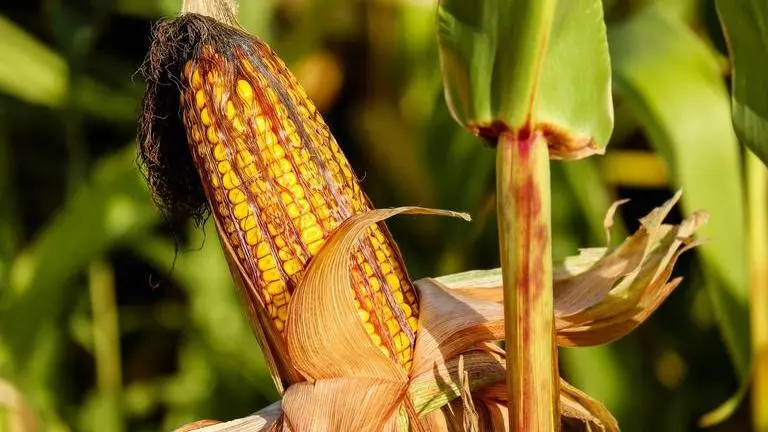Updated 2 November 2021 at 14:24 IST
NASA study finds global climate change may affect production of maize, wheat by 2030
New research on climate change has revealed that the global corn yields, among other staples, produce, can be expected to sink by quarter or 24% by 2030.
- World News
- 3 min read

New research on climate change has revealed that the global corn yields, among other staples and produces, can be expected to suffer majorly by nearly a quarter or 24% by 2030. The National Aeronautics and Space Administration (NASA) in its recent research said that wheat yields would grow at 17%. The study, published in the journal Nature Food, stated that the quick change in local weather resulted in the change in food growth pattern. The researchers noted rising temperatures and shifts in rainfall and human-made greenhouse fuel emissions are the key drivers of the change in crop production. They stressed that climate change would affect the timing of corn development and thus affect crop production.
According to NASA, the researchers have used two sets of models. The first model used climate model simulations from the international Climate Model Intercomparison Project-Phase 6 (CMIP6). Each of the five CMIP6 climate models used for this study runs its own unique response of Earth’s atmosphere to greenhouse gas emission scenarios through 2100. These responses differ somewhat due to variations in their representations of the Earth's climate system, the space agency said.
"What we're doing is driving crop simulations that are effectively growing virtual crops day-by-day, powered by a supercomputer, and then looking at the year-by-year and decade-by-decade change in each location of the world," said Alex Ruane, co-director of the GISS Climate Impacts Group and a co-author of the study.
Maize production will decline in the coming years
The researchers noted soybean and rice projections showed a decline in some regions but at the global scale, the different models still disagree on the overall impacts of climate change. For maize and wheat, the climate effect was much clearer, with most of the model results pointing in the same direction. "Maize, or corn, is grown all over the world, and large quantities are produced in countries nearer the equator. North and Central America, West Africa, Central Asia, Brazil, and China will potentially see their maize yields decline in the coming years and beyond as average temperatures rise across these breadbasket regions, putting more stress on the plants," read the research.
"Wheat, which grows best in temperate climates, may see a broader area where it can be grown as temperatures rise, including the Northern United States and Canada, North China Plains, Central Asia, Southern Australia, and East Africa, but these gains may level off mid-century," added the researchers. According to NASA scientists, the temperature is not the only factor the models consider when simulating future crop yields. Higher levels of carbon dioxide in the atmosphere have a positive effect on photosynthesis and water retention, increasing crop yields, though often at a cost to nutrition.
Advertisement
(Image: Pixabay)
Published By : Ajeet Kumar
Published On: 2 November 2021 at 14:24 IST
